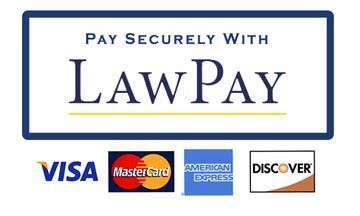Essential Legal Issuses in Purchasing Mult-Family Investment Properties
Written By: Edward Schenkel | Published: November 24, 2020

Investing in multi-family property is a great way to build wealth. Multi-families are also great first investments for new investors looking to make a smaller purchase to get their feet wet before buying something bigger. However, when buying a multi-family property there are a number of legal issues that every real estate investor should be aware of that do not arise when purchasing a condominium or single-family home. I have outlined three important issues to consider when purchasing a multi-family property.
1. ZONING: IS THE PROPERTY A LEGAL MULTI-FAMILY PROPERTY?
One of the first things I advise clients buying multi-families is that they need to understand whether the property is a legal multi-family. This comes in two forms: it must be either a permitted use under the current zoning regulations or a “legally non-conforming” property. If it is neither, then the purchaser may be in for serious problems down the road. That is why every investor should understand the zoning issues that can arise when purchasing a multi-family property and how to navigate through them.
If the multi-family property is a permitted use under the zoning regulations, then you can rest comfortably that the property’s use does not violate the zoning regulations. However, what if the multi-family is in a zone where a multi-family property is not a permitted use? Is it an illegal use, and therefore should a buyer shy away from the purchase? Not necessarily?
The multi-family property may be a legal non-conforming use. A property is considered legally non-conforming if the use complied with the zoning requirements prior to the date that the town changed the zone to remove such use from that zone. For example, if a multi-family was a permitted use in the R2 Zone in 1999 and the town thereafter removed multi-family from the R2 zone, as long as the property was in use as a multi-family prior to the change of zoning it can continue as a multi-family property after the change of zoning as a “legally non-conforming” property.
However, it is possible that an owner illegally converted property to a multi-family property in a zone that does not permit it. This would mean the property is an illegal multi-family, and is, therefore, a property you do not want to purchase. This is why it is important to explore the zoning and the history of the property to make sure you do not purchase a property that violates the zoning regulations. As long as the property is in a zone that permits multi-family or the property is legal–nonconforming, you can safely purchase the property. Make sure you ask your attorney these questions as part of your due diligence activities.
2. PROTECT YOURSELF: CREATE A LIMITED LIABILITY COMPANY (LLC) TO LIMIT LIABILITY
Buying a multi-family, or any property with tenants is a transaction that comes with risks and potential exposure to liability. For example, what if a tenant slips and falls and files a lawsuit against you arguing that her injuries are a result of you failing to comply with your obligations under the lease? What if a tenant accidentally starts a fire that spreads and causes damage to other homes in the surrounding neighborhood? These are examples of the inherent risks in buying multi-family properties. One important thing you can do to limit your liability is to create a Limited Liability Company (LLC) and to take the title in the name of the LLC.
Taking title in the name of the LLC will limit your liability to the value of the Property and will insulate you from most personal liabilities. Since the LLC is the owner of the property, any lawsuit concerning the property properly names the company as the defendant and not you individually. Since the LLC’s only asset is the property, the maximum exposure from any lawsuit is the value of the property. In other words, any judgment obtained by a tenant, neighbor, or other potential plaintiffs may only look to the company’s assets to satisfy the judgment and not your personal assets. If the property was owned by you individually, a plaintiff could look to your personal assets (bank accounts, other real estates, etc.) to satisfy a judgment.
Setting up the LLC may seem like a simple process, but there are various things to consider. For example, if you are creating an LLC with more than one member, you should think about the authority of each member. Drafting a detailed operating agreement will prevent problems between members in the future.
3. TENANTS AND LEASES: DO YOUR DUE DILIGENCE
When buying any property with tenants, it is essential to do your due diligence with respect to the tenants and the leases. As an investor, you want to make sure that the tenants are current on the rent. You do not want to purchase the property only to learn that the tenants are six months behind on the rent and are vigorously fighting an eviction lawsuit. Therefore, it would be prudent to request that the seller sign a document called an estoppel certificate. This document will require the Seller to make a representation that the leases are in full force and effect and that the tenant, and current on the rent.
It is also prudent to review each lease with your attorney. You should be aware of the termination date of each lease and whether the tenant has the option to renew. If the leases are to terminate a month after closing, you should be prepared for the possibility of vacancies. Moreover, if the tenants have an option to renew, this may interfere with your plans to lease to other tenants. Occasionally, leases have options to purchase. This type of provision is problematic for any investor as the tenant would have the option to purchase the property after you closed. You would need to obtain a waiver from the tenant in this situation. This is why it is imperative to review each lease thoroughly with your attorney to make sure you know what you are getting into.
In summary, it is in your best interest as a real estate investor to carefully perform due diligence and review each lease carefully before purchasing an investment property.


